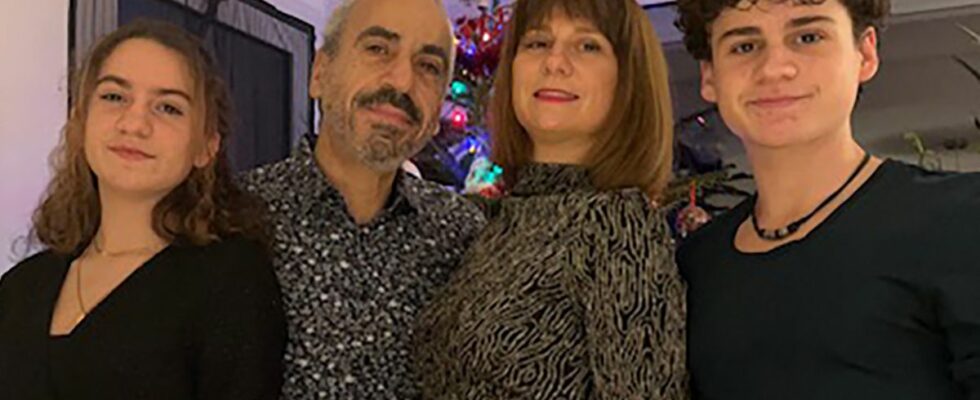“You can take drugs, drink alcohol, it’s up to you. But no one forced you to drive. You took it consciously. You took it on purpose. Your life belongs to you, but not that of others. These words published on Facebook and addressed to Pierre Palmade are a cry from the heart. That of Yvon Guez, a 68-year-old Antibois for whom the comedian’s accident reopened already gaping wounds. On the night of June 24 to 25, 2022, his son Noah, barely 16, was killed by an alcoholic and drugged driver. This 43-year-old man hit a priori the young man’s unlicensed car at high speed. Placed in pre-trial detention, he was released on bail two months later.
Since then, the teenager’s family has been fighting to ensure that the young man’s death is not in vain. The Guez have embarked on a “fight to change the texts” against the “delinquents of the road” who make their car “a destructive weapon”. The LR deputy for the Alpes-Maritimes Éric Pauget accompanies them. He is drafting a bill, “Noah’s law”, which should be officially tabled at the end of the month, according to the parliamentarian’s entourage. While waiting for this deadline and the holding of a trial, perhaps in 2024, Yvon Guez and his wife Marceline, 46, hope for “awareness”. They confided in 20 minutes.
How did you react when the circumstances of Pierre Palmade’s accident became known?
Marceline Guez: It was very hard. It’s always very complicated. Because this case really echoes Noah’s accident. And we hear about it every day. There, it is very well publicized but it actually happens to many families, who find themselves destitute.
Yvon Guez: It brought everything back to life again. But we want to say that we understand families, that we support them. It’s still drugs, still big nonsense.
It has been eight months since Noah passed away. What state of mind are you in today?
MG: We think about it every moment, every time we do something. We miss him terribly. Our life has completely changed.
YG: We can no longer live. We can’t work anymore either. We were traders and we sold our business. We wake up every morning with a lump in our stomachs. During the day, we put on a kind of shell to be able to contain our pain in relation to those around us. But, in the evening, we take it off and we cry. When we are at the table, Noah’s place is always empty. There is no longer any moment of joy.
How did you decide to get involved in this fight to change the law?
MG: For us, the trigger came two months after Noé’s accident, when the person involved was released against the advice of the prosecution. We were really confused. So we organized a march against road violence and to denounce what was happening to us. That our son’s killer could be released from prison after two months with a bail of 5,000 euros, even if he was on remand, that seemed unlikely to us. He still killed a child. The judge simply told us that he filled in all the boxes and that, suddenly, it was completely normal for him to come out. For us, for a family, it was hyperviolent, while the investigation was not at all over. You realize ? In the case of Noé, someone who did anything and who took the life of a child, after two months, he was released from prison. What image does this send back to our young people?
YG: And all that, while he’s a repeat offender. He had already had drug checks. He had already had his driver’s license suspended. The investigation continues but the expertise is overwhelming for him. He was drunk, with three times the legal alcohol limit. There are traces of drugs in his blood, cocaine and ecstasy a priori. And it turns out that he crossed paths with our son, who had his life ahead of him. Noé was a top athlete. It was in the French shooting team. He was aiming for the Olympics. At least Pierre Palmade is forgiving. Ours also seeks to exculpate itself. When he didn’t even try to help my son.
What could this bill change?
MG: MP Eric Pauget was at the march we organized and he contacted us afterwards to tell us about this initiative, which is on his initiative. The idea is to create the offense of road homicide, where there is no longer the notion of manslaughter, when the accident is caused by a person who has consumed illicit substances or alcohol above certain limits. We want to change the law to make it a little harsher and more reprehensible. As it stands, it doesn’t deter people enough from engaging in these extremely dangerous behaviors. Currently, the maximum penalty is ten years in prison. But very few are condemned to that. And, in fact, many don’t even go to jail.
YG: There was still a good signal. This is what just happened with Pierre Palmade who was placed in detention. The justice considered that, if he remained free, he could take back his car and remain a real public danger.
Today, you explain that it is ultimately this fight that allows you to hold on…
MG: It’s what we cling to and what allows us to stay upright. People may be too individualistic and don’t think about the consequences of their actions. But it’s time for some awareness. It really is a social problem that needs to be addressed. These scourges of the road destroy lives but also existences. After their passage, entire families find themselves devastated.

